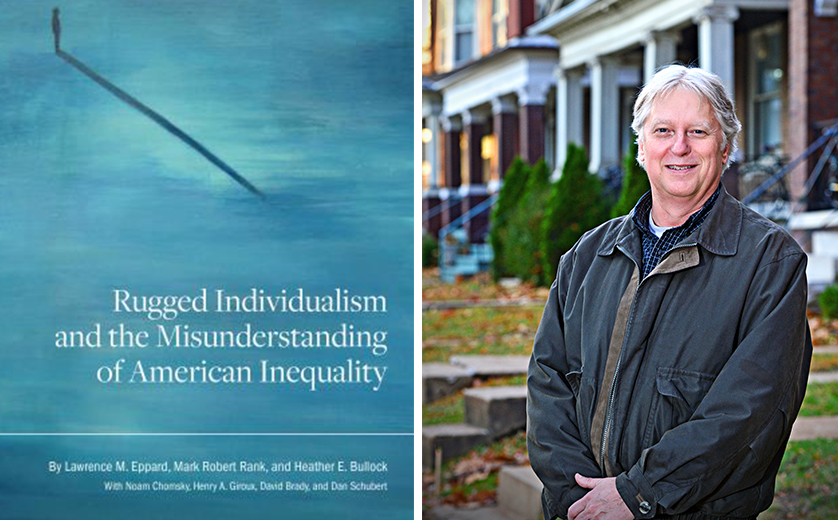“Pull yourself up by the bootstraps.” It’s an old adage about American resilience. But how does it impact poverty?
A new book by a professor at the Brown School at Washington University in St. Louis explores and critiques the widespread perception in the United States that one’s success or failure in life is largely the result of personal choices and individual characteristics.
“Rugged Individualism and the Misunderstanding of American Inequality,” co-authored by Mark Rank, the Herbert S. Hadley Professor of Social Welfare, is published by Lehigh University Press.
“From its beginnings, America has emphasized and celebrated the idea of rugged individualism,” said Rank, a noted expert on income inequality. “The notion of breaking the frontier, or the rags to riches stories, celebrate this ideal. The problem is that while individual effort is important for getting ahead in life, it is often not enough.”
We might think of it as a necessary but insufficient condition, he said. “Many other factors beyond an individual’s control come into play in affecting how well one does in life. For example, I’m currently working on a book that focuses on the importance of chance and luck in profoundly shaping the course of our lives.”
In “Rugged Individualism,” Rank and his co-authors show that the distinctively individualist ideology of American politics and culture shapes attitudes toward poverty and economic inequality in profound ways, fostering social policies that de-emphasize structural remedies.
